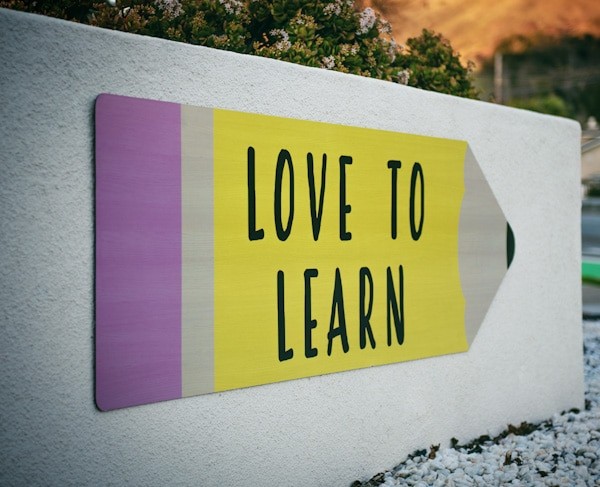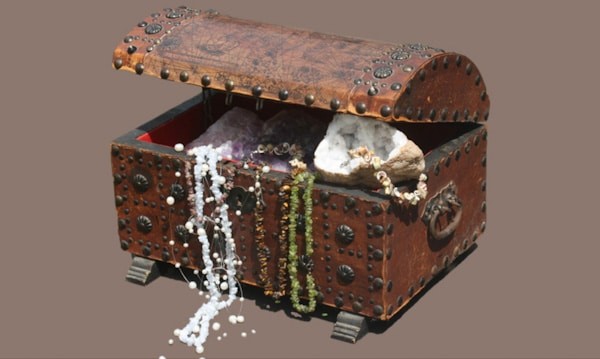
Nowadays It seems like the question, "Is Cryptocurrency Hard To Learn", happens to be on a lot of peoples' minds.
So I thought I might offer you a few key areas to start with.
I have listed five of them below.
So let’s go see what they will show.
Cryptocurrency is a virtual currency that comes from complex math & technology. But the difficulty of learning depends on the complexity of how the information is presented. The best place for most people to start is cryptocurrency fundamentals, followed by crypto Exchanges, and wallets.

Cryptocurrencies, also known as cryptos, are digital currencies (digital money/digital gold).
They are secured through cryptographic techniques.
Cryptography in the most basic terms is where math is used to ensure that only the sender and receiver of a message can view it.
That’s where the term “crypto” comes from.
A lot of cryptocurrencies rely on blockchain technology also.
The blockchain is a decentralized virtual ledger (kind of like a digital accounting book).
Also, one of the key takeaways of the blockchain according to (Investopedia) is: “Decentralized blockchains are immutable, which means that the data entered is irreversible. For Bitcoin, this means that transactions are permanently recorded and viewable to anyone”.
Now, we come to the digital money/digital gold part.
Crypto is like money in that you can buy products or services with it over the internet.
Also like money, crypto is easily divided.
For instance, bitcoin can be divided into a "Satoshi" which is represented as .00000001 and is equal to 100 millionth of a bitcoin.
On the other hand, it is also like gold (digital gold).
Take bitcoin for example again, it is like gold in that there is only going to be a finite supply.
This means they are only going to mine (make) so many of them, “21 million to be exact”.

Many years ago, finding a good cryptocurrency exchange could be a real pain.
Especially if you lived in the United States.
Most of the exchanges seemed like they weren’t able to do business with U.S. Citizens back then.
Also, getting an account with the ones we could use came with its own troubles.
Most of them, not all, used strict KYC (know your customer), which is what identifies and verifies that a customer is who they say they are.
One part of the KYC was where you would have to sit at your computer and try to use their facial recognition system.
Which wasn’t very reliable back then, to be honest.
It never seemed to work the first or even the fifth time.
Then when it didn’t recognize you after the first couple of times, you would have to wait a while before you could try again.
It’s been a while, so I don’t remember exactly how long you had to wait, but it seems like it was several hours or even a day or so.
Now you would think since most people involved in cryptocurrency exchanges are pretty tech-savvy, that their websites would work correctly, at least more times than not, but that didn't seem to be the case back then.
So after saying all that, most of the exchanges that use strict KYC today let you use a selfie for face recognition, which is a lot easier than back in the day.
AI has advanced a pretty good bit since then too.
Also, if you're a U.S. citizen there are more options available to you now, as far as crypto exchanges go.
These exchanges, especially well-established ones, like coinbase, make it pretty easy to navigate when setting up an account.

Your cryptocurrency wallet could be compared to a treasure chest.
Since that’s where you'll store all your treasure (crypto).
In saying that, I think that it's best to have more than one wallet.
To explain I'll refer back to the treasure chest.
Try to think back to when kings and queens used to keep their treasure in a chest.
Let us suppose they were to put their chests on more than one ship when they transported it.
That way if one of the ships in the armada were to get attacked by pirates, they would only lose the chests on that one ship, instead of the entire booty.
So, as in this little illustration that I just laid out, modern-day crypto investors would be wise to have more than one digital wallet too.
That way if you end up losing or forgetting your password to one wallet, you won’t forfeit everything that you have.
Also, having more than one digital wallet is equally important when it comes to potentially being hacked, even though that's a rarity and steps can be taken that would make it almost impossible.
Since most crypto experts agree; cryptocurrency is best served by being kept in a cold wallet, meaning one that’s not connected to the internet.
One example of a cold wallet is a hardware wallet, like the Trezor & Ledger crypto wallets.
In my experience, a hardware wallet is one of the safest & best places to store your cryptocurrency, especially when you factor in their ease of use.
Nonetheless, even those aren’t Foolproof, especially if you aren't careful.
One example was an incident where hackers breached the servers of hardware wallet manufacturer ledger, and pushed out malicious firmware updates, although it appears as if no one lost any Bitcoin.
Since then, Ledger has made updates to their software to make it more secure.
Overall though, the paper wallet is considered the ultimate, when it comes to safety.
But in my opinion, they’re just not that convenient when it comes to usage and storage.

Have you ever heard the saying, Get Learn’t or Get Reck’d?
Well, I’ve heard this thrown around the crypto world quite a few times.
What this means is that you should make sure to learn all you can before trading or investing in cryptocurrencies.
Otherwise, you stand a good chance of losing the shirt off your back.
Now sometimes there can be a lot of volatility (big upswings and downswings) in the stock market.
However, compared to the crypto market that’s nothing.
So you want to be sure to arm yourself with as much information on the subject as you can before jumping into any crypto and never invest more than you can afford to lose.
Actually, I believe that holds true for anything that you plan on investing in.
The more that you know about something, the better equipped & prepared you’re going to be in the long run.
As I truly believe & love to express, Knowledge is Power!

To relate it to the old saying “don’t put all your eggs in one basket.”
Now, if you have all your eggs in one basket and you drop it, they all break, right?
On the other hand, if you have your eggs in more than one basket and you drop one, you still have several other baskets full of eggs.
So as a relatable example, if someone were to divide their capital into 4 equal parts, 25% each.
Then they put each part into a different asset; let’s say for example's sake, 25% crypto, 25% stocks, 25% commodities, & 25% real estate.
So if their crypto assets happen to go to 0, then they would still have 75% percent left, instead of being completely wiped out.
Now, this hypothetical illustration is assuming all the other assets stayed level.
So when people invest in several different assets, if there is a bad performance in one, or even two it doesn’t have to take down their whole portfolio.
Diversifying is an age-old strategy, which is said to be as old as finance itself.
Video Version: Is Cryptocurrency Hard To Learn? Start Your Journey Now!
To answer the question; is crypto hard to learn? We first need to ask the question; how is the information being presented? Is it being explained as plainly as possible or is it being taught as if by a professor who specializes in teaching brain surgery on the moon, while wearing a space suit in low gravity...Hahaha! The bottom line is if you take your time to learn and grasp the basic crypto fundamentals, you should be well on your way. Then when you’re ready you can start learning other areas, like maybe taking a deeper dive into crypto exchanges and wallets for example. After that, if you’re still hungry for more, you might consider tackling cryptography or the blockchain. All in all, if someone is willing to put in the time and effort, I believe they should at least be able to get a basic understanding of cryptocurrencies.